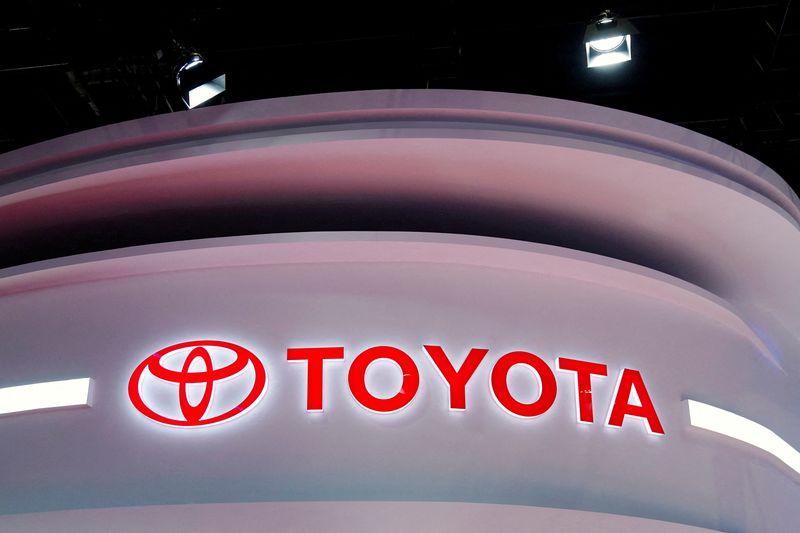TOKYO (Reuters) -Japan raised support for the production of storage batteries to up to $2.2 billion, the government said, pledging nearly $1 billion in new subsidies for Toyota and other manufacturers as part of a push towards greater economic supply chain security.
The move shows Tokyo is confident about ramping up battery production support after the United States and Japan struck a deal on electric vehicle (EV) battery minerals in March that is key to giving Japanese automakers wider access to a new $7,500 U.S. EV tax credit.
"As the international competition for storage batteries is intensifying, competition for capital investment is also becoming more intense," Minister of Economy, Trade and Industry Yasutoshi Nishimura told reporters.
Elsewhere, European Union leaders agreed earlier this year they should allow targeted support to ensure Europe's future as a manufacturing base for green tech products and counter U.S. and Chinese competition.
Toyota this week laid out a sweeping plan for new technology and a radical redesign of factories, sending the clearest signal yet of its intention to capture a larger share of the fast-growing market for battery EVs, where it has been far outsold by rivals such as Tesla (NASDAQ:TSLA).
The government will support Toyota for up to 117.8 billion yen ($841 million) in subsidies for its investment in EV battery production, Nishimura said, adding he hoped it would strengthen Japan's storage battery supply chain.
There were no further details about the investment that Toyota could provide beyond those already disclosed by the ministry, a company spokesperson said.
The ministry said mass production of the batteries by Toyota was expected to start in stages from October 2026 onwards.
SUPPLY CHAIN SECURITY
The support comes as Japan and other U.S. allies increasingly look to secure supply chains away from China, which is a major player in EV batteries.
Japan has designated batteries for energy storage, including car batteries, as important under an economic security law.
The support for Toyota amounts to just over a third of about 330 billion yen in investment including for solid-state and lithium iron phosphate battery development with an annual production capacity of 25 gigawatt hours (GWh), METI said.
Part of that subsidy will be provided to three companies with which Toyota is working on battery development, including Toyota Industries.
The investment will bring annual production capacity in Japan to 45 GWh, Nishimura said, adding the government seeks to achieve domestic output capacity of 150 GWh by 2030.
Japan's No.2 automaker Honda Motor and battery maker GS Yuasa in April announced the building of a new plant that would target at least 20 GWh, for which the government would give up to 158.7 billion yen in subsidies.
It had announced 184.6 billion yen in support for storage battery-related proposals at that time.

Friday's announcement of 127.6 billion yen in subsidies brought the total so far to 312.2 billion yen.
($1 = 141.0300 yen)